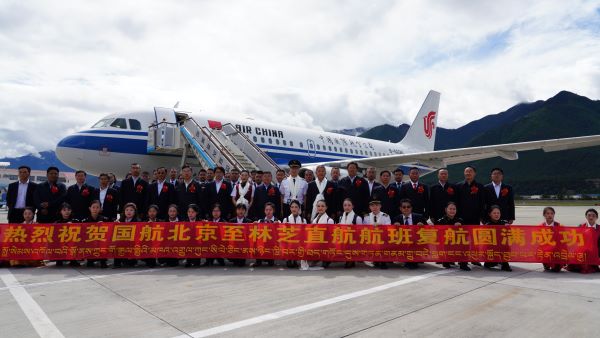
Team News Riveting
Air China on Friday resumed the Beijing-Nyingchi in SW China’s Tibet Autonomous Region route after a six-year suspension.
The carrier said it would increase its frequency from four times per week currently to daily flights from July 10 to Oct 30. Increasing the flight frequency after Nyingchi’s famous peach blossom festival that ends in April shows China’s move to intensify activities in the region that has strategic importance.
Nyingchi is China’s old military base in southeast Tibet. At present, it is the headquarters of the 52nd and 53rd Mountain Infantry Brigades of the Chinese Army. China has been trying for the last decade to connect this military base adjacent to India’s border with its main military centers by air, rail and highway. India’s Arunachal Pradesh border is just 17 km from the centre.
China’s extensive development of road, rail and air infrastructure in Tibet has sparked concerns in India as it also provides a major advantage to the Chinese military. In fact, India too has initiated border infrastructure development in recent years.
The strategically significant railway line – the second major rail link to Tibet – that will link Sichuan province with Nyingchi lies near the border with India’s Arunachal Pradesh and will be operationalised by the end of this month.
The importance of the project, Chinese experts said, is two-fold. Like the Qinghai-Tibet railway line, which in 2006 connected Lhasa to the hinterland, this will be the second such route linking the Tibet Autonomous Region (TAR) to the hinterland.
Secondly, it will run right up to Nyingchi near the border with India, which it will link to both Lhasa and Chengdu, the provincial capital of Sichuan. The entire line will run from Chengdu to Lhasa, connecting the two capitals of TAR and Sichuan and cutting the journey from 48 hours to 13 hours.



